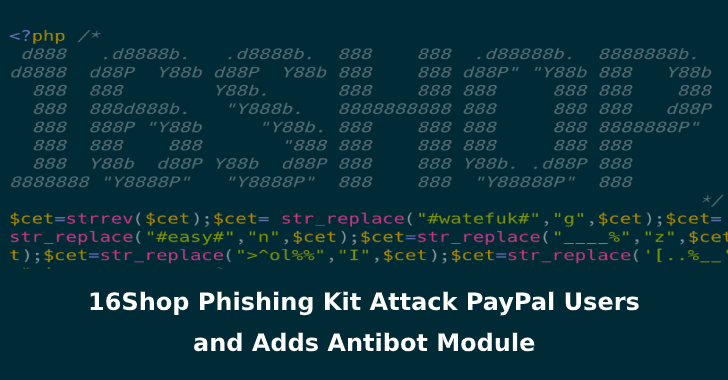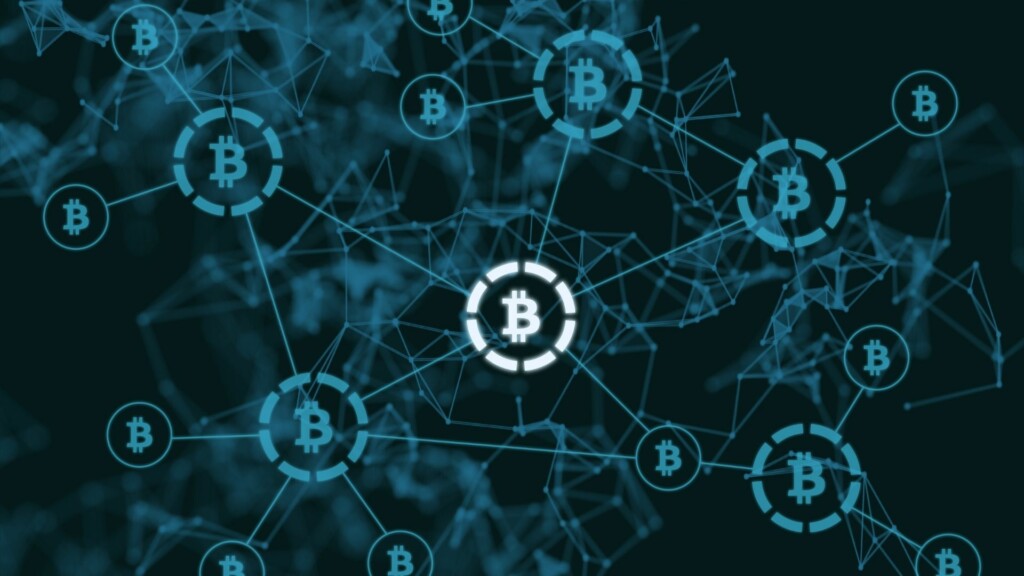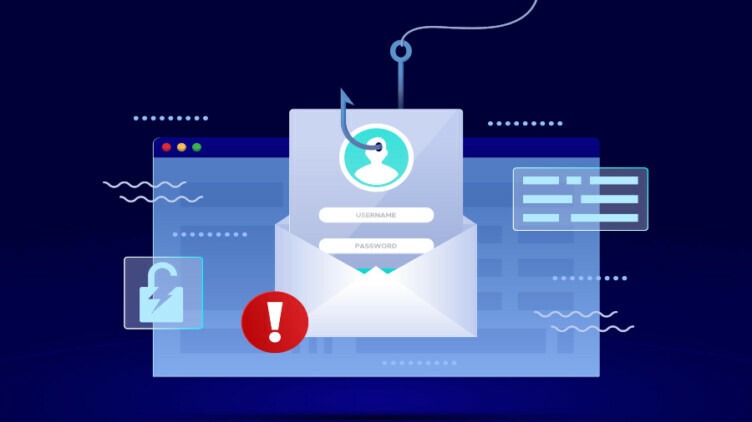16shop Phishing-As-A-Service Platform Taken Down
By Interpol & SCARS Editorial Team – Society of Citizems Against Relationship Scams Inc.

Interpol Coordinated Takes Down 16shop Phishing-As-A-Service Platform Used By 70,000 People
16shop Notorious phishing platform shut down, arrests in international police operation
In a remarkable triumph over cybercriminal activity, the curtains have fallen on the nefarious phishing-as-a-service platform known as 16shop. This decisive outcome emerged from a comprehensive international effort led by Interpol.
The Story
In the aftermath of this concerted operation, a 21-year-old Indonesian individual, alleged to be the orchestrator of the platform, now faces apprehension. Two additional individuals, linked to the platform’s activities, have also been captured—one located in Indonesia and the other in Japan. Seizing the opportunity, law enforcement agencies secured electronic devices and opulent belongings belonging to the suspects.
A significant player in this operation was cybersecurity investigators Group-IB, which revealed that 16shop’s arsenal of hacking tools had been circulating within the underbelly of cybercrime forums since at least November 2017. Disturbingly, these tools were distributed to over 70,000 users across 43 countries. The malevolent potential of these tools empowered hackers to deftly manipulate unsuspecting individuals through email scams, systematically extracting personal and financial information for illicit gains.
Among these tools were meticulously crafted phishing kits, strategically designed to extract credentials and payment details from users of esteemed services such as Apple, PayPal, Amazon, American Express, and Cash App. Marketed at reasonable costs ranging from $60 to $150, the pricing fluctuated based on the prestige of the targeted brand. For instance, the Amazon kit was nearly $90 more affordable than its American Express counterpart.
The enormity of 16shop’s impact is illuminated by the staggering creation of over 150,000 phishing domains. Group-IB, headquartered in Singapore, unveiled a client base that systematically victimized individuals across diverse countries including Germany, Japan, the U.S., France, the U.K., and Thailand. Strikingly, while the masterminds hailed from Asia, the platform’s infrastructure was upheld by servers hosted through a U.S.-based company.
The sinister power of phishing-as-a-service tools lies in their ability to automate cyberattacks. Interpol underscored the accessibility of these tools, enabling “any person to leverage this type of service to launch a phishing attack with a few clicks.” Even individuals with modest cyber skills can propagate phishing pages at scale, thanks to these turnkey kits—a revelation that Group-IB brought into sharp focus.
In the wake of this triumph, the lesson is clear: unity and unwavering commitment can pierce the veil of cybercrime, illuminating a safer digital landscape for all.
According to INTERPOL
The platform sold hacking tools to compromise more than 70,000 users in 43 countries
SINGAPORE – A notorious ‘phishing-as-a-service’ (PaaS) platform known as ‘16shop’ has been shut down in a global investigation coordinated by INTERPOL, with Indonesian authorities arresting its operator and one of its facilitators, with another arrested in Japan.
The three arrests, which concluded with actions against a suspect last month, was made possible due to the intensive intelligence-sharing between the INTERPOL General Secretariat’s cybercrime directorate, national law enforcement in Indonesia, Japan and the United States and private sector partners including Cyber Defense Institute, Group-IB, Palo Alto Networks Unit 42 and Trend Micro, with added support from Cybertoolbelt.
The PaaS platform sold ‘phishing kits’ to hackers seeking to defraud Internet users through email scams where victims typically receive an email with a pdf file or link that redirects to a site requesting the victims’ credit card or other personally identifiable information. This information is then stolen and used to extract money from the victims.
Phishing is considered the most prevalent cyber threat in the world, and it is estimated that up to 90 per cent of data breaches are linked to successful phishing attacks, making it a major source of stolen credentials and information.
“Cyberattacks such as phishing may be borderless and virtual in nature, but their impact on victims is real and devastating.”
Bernardo Pillot, INTERPOL’s Assistant Director of Cybercrime Operations
“In recent years, we have seen an unprecedented increase in both the number of cyber threats and their sophistication, with attacks becoming more tailored as criminals aim for maximum impact, and maximum profit,” added Assistant Director Pillot.Luxury vehicles
The PaaS platform was flagged by analysts in INTERPOL’s cybercrime division during an ongoing project researching cyber threats in the ASEAN region, supported by Japan’s National Police Agency.
Assisted with information from an array of private sector partners, the INTERPOL team was soon able to determine the identity and probable location of the platform’s administrator. As the platform’s registration indicated, he was based in Indonesia.
Because the platform’s servers were hosted by a company based in the United States, analysts liaised with the INTERPOL National Central Bureau in Washington and the Federal Bureau of Investigation to secure key information for Indonesian investigators.
The INTERPOL team compiled and dispatched a criminal intelligence report to the Indonesian National Police’s Directorate of Cyber Crimes, which allowed national law enforcement to arrest the administrator, a 21-year-old man, seizing electronic items and several luxury vehicles in the process.
Following the successful apprehension of the administrator, further information was shared between the National Police Agency of Japan and the Indonesian National Police resulting in the identification and arrest of two facilitators.
“Phishing isn’t a new phenomenon, but when the crime-ware is being offer widely on subscription and to automate phishing campaigns, it enables any person to leverage this type of service to launch a phishing attack with a few clicks,” said Brigadier General Adi Vivid Agustiadi Bachtiar, Director of the Indonesian National Police’s Cyber Crime Investigation.
“This operation is only successful as we work closely with various stakeholders from the law enforcement community as well as the private sectors, to uproot the root problem to stop the crime-ware being offered as a service and also stopping more people from falling victim to phishing attacks,” added Brigadier General Adi Vivid Agustiadi Bachtiar.
INTERPOL’s cybercrime directorate brings together cyber experts from law enforcement and industry to gather and analyze all available information on criminal activities in cyberspace to provide countries with coherent, actionable intelligence.
Resources:
- Sign up for SCARS professional support & recovery groups, visit support.AgainstScams.org
- Find competent trauma counselors or therapists, visit counseling.AgainstScams.org
- Become a SCARS Member and get free counseling benefits, visit membership.AgainstScams.org
- Report each and every crime, learn how to at reporting.AgainstScams.org
- Learn more about Scams & Scammers at RomanceScamsNOW.com and ScamsNOW.com
- Self-Help Books for Scam Victims are at shop.AgainsstScams.org
- Donate to SCARS and help us help others at donate.AgainstScams.org
More:
- Cybercriminals Operating Major Ransomware Hosting Service (scamsnow.com)
- Interpol Operation Jackal – Arrested Over 100 (scamsnow.com)
- Major Ivory Coast Scammer Kingpin of OPERA1er Group Arrested (scamsnow.com)
- How To Recognize, Avoid, and Report Phishing Scams (romancescamsnow.com)
- Types Of Scams – A New Taxonomy (romancescamsnow.com)
- QR Code Scams (romancescamsnow.com)
- Using ChatGPT To Spot Scams (romancescamsnow.com)
- “Hello” Text Message Scams (romancescamsnow.com)
-/ 30 /-
What do you think about this?
Please share your thoughts in a comment below!
More ScamsNOW.com Articles
-/ 30 /-
What do you think about this?
Please share your thoughts in a comment above!
SCARS LINKS: AgainstScams.org RomanceScamsNOW.com ContraEstafas.org ScammerPhotos.com Anyscam.com ScamsNOW.com
reporting.AgainstScams.org support.AgainstScams.org membership.AgainstScams.org donate.AgainstScams.org shop.AgainstScams.org
youtube.AgainstScams.org linkedin.AgainstScams.org facebook.AgainstScams.org
ARTICLE RATING
TABLE OF CONTENTS
META
CATEGORIES
MOST POPULAR COMMENTED ARTICLES
POPULAR ARTICLES
U.S. & Canada Suicide Lifeline 988
![NavyLogo@4x-81[1]](https://scamsnow.com/wp-content/uploads/2025/04/NavyLogo@4x-811.png)
WHAT PEOPLE ARE TALKING ABOUT
LATEST SITE COMMENTS
See Comments for this Article at the Bottom of the Page
on Darkest Before the Dawn – What This Means to Psychological Trauma Sufferers – 2025: “How not to lose hope, not to give up when the darkness grows? What to do in such moments ?…” May 10, 05:03
on Psychological Trauma Or PTSD And Chronic Headaches And Migraines – 2024: “I am so thankful I don’t and haven’t suffered from migraines or tension headaches. I’ve seen in others how debilitating…” May 9, 16:35
on Nightmares, Night Terrors, And Scam Victim Trauma – 2024: “I did experience nightmares in the first few weeks after the scam. I would wake in a cold sweat, paralyzed…” May 9, 14:28
on Scam Victim Psychological Alienation After A Scam 2024: “I absolutely experienced self-estrangement, self isolation, powerlessness and normlessness in the first months after the scam. My sense of identity…” May 9, 13:51
on Scam Victim Empathy – How It Is Lost And How It Comes Back In Time – Recovery Psychology 2023: “I have no doubt that I lacked empathy during the first weeks/months after the scam ended. I experienced such severe…” May 9, 13:40
on Relationship Scams And Their Impact On Memory: “This article helped me to understand the various ways trauma and emotions effect our memories along with our ability to…” May 9, 13:09
on High-Functioning Anxiety in Scam Victims – 2025: ““You aren’t just trying to heal from what someone else did to you. You’re trying to make peace with yourself,…” May 8, 18:49
on Vulnerability to Scams Caused by Past Relationships is Like a River Running through Your Life Cutting Channels – 2025: “My big take away from this article is that there are many layers to my vulnerability. Yes, losing my Mom…” May 8, 11:43
on Hate for Scammers and Criminals Feels So Good But is So Bad for Scam Victims – 2025: “As stated here it feels like it should be justified – to hate them. I never did feel that way,…” May 6, 17:32
on Scam Victims Suppressing Trauma Or Avoiding Recovery And Healing 2024: “This is a great article that will, hopefully, help when I am avoiding facing my emotions/triggers. Recognizing the signs and…” May 6, 16:47
on SCARS 5 Coping Techniques For Traumatized Scam Victims – 2023: “One of the best ways of coping for me has been to reconnect with my friends. I self-isolated for months…” May 6, 16:07
on Trauma Recollection/Traumatic Flashbacks And Scam Victim PTSD – Recovery Psychology – 2023: “I don’t feel like my trauma can be described as PTSD. The affects after the scam ended were severe anxiety,…” May 6, 15:55
on Selective Amnesia and Scam Victim Psychological Trauma 2023: “This was a very interesting article to me. I have not experienced selective amnesia in relation to the scam. However,…” May 6, 15:39
on Psychological Triggers/Emotional Triggers – What They Are And How They Work – 2023/2024: “Not long after my scam ended, I needed to go to the grocery store. It never crossed my mind that…” May 6, 14:48
on Learning And The Challenges That A Scam Victim Faces From Trauma And Related Cognitive Effects – 2024: “My cognitive impairment was bad right after my scam. However, I have now noticed that it was especially bad during…” May 6, 14:23
on Hate for Scammers and Criminals Feels So Good But is So Bad for Scam Victims – 2025: “This is all true and valid. I had to forgive myself first for trusting my abuser because he hurt my…” May 6, 10:08
on Nirvana and the Path to Letting Go of Suffering – 2025: “En mi experiencia podría describir el nirvana en mi recuperación como ese estado de paz profunda y liberación emocional que…” May 5, 18:58
on The Prodigal Son or Daughter – Returning ‘Home’ After the Scam – 2025: “It’s true that the judgment of others does not define my path but if after “coming home” those closest to…” May 5, 13:21
on Beginning Again and Scam Victim Recovery -2025: “Taking action is the first step to recovery and I am doing that and becoming a newer stronger version of…” May 5, 09:53
Important Information for New Scam Victims
Please visit www.ScamVictimsSupport.org – a SCARS Website for New Scam Victims & Sextortion Victims
SCARS Institute now offers a free recovery program at www.SCARSeducation.org
Please visit www.ScamPsychology.org – to more fully understand the psychological concepts involved in scams and scam victim recovery
If you are looking for local trauma counselors, please visit counseling.AgainstScams.org
If you need to speak with someone now, you can dial 988 or find phone numbers for crisis hotlines all around the world here: www.opencounseling.com/suicide-hotlines
Statement About Victim Blaming
Some of our articles discuss various aspects of victims. This is both about better understanding victims (the science of victimology) and their behaviors and psychology. This helps us to educate victims/survivors about why these crimes happened and not to blame themselves, better develop recovery programs, and help victims avoid scams in the future. At times, this may sound like blaming the victim, but it does not blame scam victims; we are simply explaining the hows and whys of the experience victims have.
These articles, about the Psychology of Scams or Victim Psychology – meaning that all humans have psychological or cognitive characteristics in common that can either be exploited or work against us – help us all to understand the unique challenges victims face before, during, and after scams, fraud, or cybercrimes. These sometimes talk about some of the vulnerabilities the scammers exploit. Victims rarely have control of them or are even aware of them, until something like a scam happens, and then they can learn how their mind works and how to overcome these mechanisms.
Articles like these help victims and others understand these processes and how to help prevent them from being exploited again or to help them recover more easily by understanding their post-scam behaviors. Learn more about the Psychology of Scams at www.ScamPsychology.org
SCARS INSTITUTE RESOURCES:
IF YOU HAVE BEEN VICTIMIZED BY A SCAM OR CYBERCRIME
♦ If you are a victim of scams, go to www.ScamVictimsSupport.org for real knowledge and help
♦ Enroll in SCARS Scam Survivor’s School now at www.SCARSeducation.org
♦ To report criminals, visit https://reporting.AgainstScams.org – we will NEVER give your data to money recovery companies like some do!
♦ Sign up for our free support & recovery help by https://support.AgainstScams.org
♦ Join our WhatsApp Chat Group at: https://chat.whatsapp.com/BPDSYlkdHBbDBg8gfTGb02
♦ Follow us on X: https://x.com/RomanceScamsNow
♦ Follow us and find our podcasts, webinars, and helpful videos on YouTube: https://www.youtube.com/@RomancescamsNowcom
♦ SCARS Institute Songs for Victim-Survivors: https://www.youtube.com/playlist…
♦ See SCARS Institute Scam Victim Self-Help Books at https://shop.AgainstScams.org
♦ Learn about the Psychology of Scams at www.ScamPsychology.org
♦ Dig deeper into the reality of scams, fraud, and cybercrime at www.ScamsNOW.com and www.RomanceScamsNOW.com
♦ Scam Survivor’s Stories: www.ScamSurvivorStories.org
♦ For Scam Victim Advocates visit www.ScamVictimsAdvocates.org
♦ See more scammer photos on www.ScammerPhotos.com
You can also find the SCARS Institute on Facebook, Instagram, X, LinkedIn, and TruthSocial
Psychology Disclaimer:
All articles about psychology and the human brain on this website are for information & education only
The information provided in this and other SCARS articles are intended for educational and self-help purposes only and should not be construed as a substitute for professional therapy or counseling.
Note about Mindfulness: Mindfulness practices have the potential to create psychological distress for some individuals. Please consult a mental health professional or experienced meditation instructor for guidance should you encounter difficulties.
While any self-help techniques outlined herein may be beneficial for scam victims seeking to recover from their experience and move towards recovery, it is important to consult with a qualified mental health professional before initiating any course of action. Each individual’s experience and needs are unique, and what works for one person may not be suitable for another.
Additionally, any approach may not be appropriate for individuals with certain pre-existing mental health conditions or trauma histories. It is advisable to seek guidance from a licensed therapist or counselor who can provide personalized support, guidance, and treatment tailored to your specific needs.
If you are experiencing significant distress or emotional difficulties related to a scam or other traumatic event, please consult your doctor or mental health provider for appropriate care and support.
Also read our SCARS Institute Statement about Professional Care for Scam Victims – click here
If you are in crisis, feeling desperate, or in despair, please call 988 or your local crisis hotline.
More ScamsNOW.com Articles
A Question of Trust
At the SCARS Institute, we invite you to do your own research on the topics we speak about and publish. Our team investigates the subject being discussed, especially when it comes to understanding the scam victims-survivors’ experience. You can do Google searches, but in many cases, you will have to wade through scientific papers and studies. However, remember that biases and perspectives matter and influence the outcome. Regardless, we encourage you to explore these topics as thoroughly as you can for your own awareness.
















![scars-institute[1]](https://scamsnow.com/wp-content/uploads/2025/04/scars-institute1.png)
![niprc1.png1_-150×1501-1[1]](https://scamsnow.com/wp-content/uploads/2025/04/niprc1.png1_-150x1501-11.webp)
